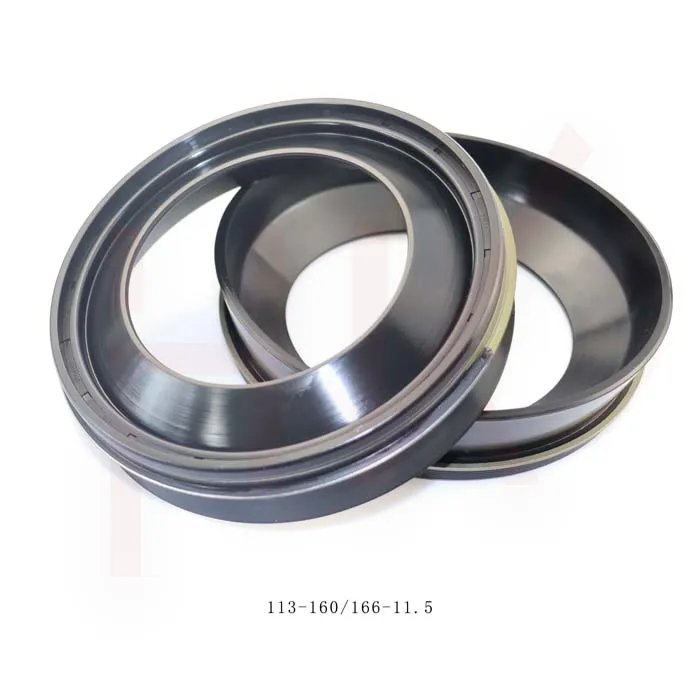Nov . 20, 2024 12:16 Back to list
rotary oil seals
Understanding Rotary Oil Seals A Comprehensive Overview
Rotary oil seals, also known as rotary shaft seals or lip seals, are critical components in various machines and engines, playing a fundamental role in preventing leaks and ensuring optimal performance. They are designed to seal the interface between rotating and stationary parts, allowing machinery to operate efficiently while minimizing the risk of oil loss and contamination from external elements.
Structure and Functionality
Rotary oil seals typically consist of three main parts the sealing lip, the housing, and the spring. The sealing lip is the flexible part that makes contact with the shaft, creating a barrier to prevent the escape of oil. The spring, usually made of stainless steel, exerts a constant force on the sealing lip, ensuring it maintains contact with the shaft despite wear or variations in pressure. The housing holds the components together and provides a mounting point for easy installation in machinery.
The material used for the lip is crucial for the seal's performance. Neoprene, nitrile rubber, and fluorocarbon are common materials chosen based on the temperature range and chemical compatibility required for specific applications. For instance, nitrile is often used in automotive applications due to its excellent resistance to petroleum-based oils, while fluorocarbon materials are preferred in high-temperature environments.
Applications of Rotary Oil Seals
Rotary oil seals are utilized in a wide range of industries, including automotive, aerospace, manufacturing, and agriculture. In vehicles, they prevent engine oil leakage, ensuring that the engine remains lubricated and operates smoothly. In industrial machinery, they are present in motors, pumps, and compressors, protecting vital components from dirt and moisture while retaining lubricants within the system.
rotary oil seals

In agriculture, rotary oil seals are essential in equipment such as tractors and harvesters, where durability and resistance to harsh conditions are vital
. Their role in hydraulic systems is also significant as they ensure that hydraulic fluids do not leak out, maintaining the system's efficiency.Challenges and Maintenance
Despite their importance, rotary oil seals can face several challenges that may compromise their effectiveness. Common issues include wear and tear due to friction, exposure to extreme temperatures, or chemical degradation from various fluids. Signs of failure may include visible leaks, abnormal noises, or changes in the performance of the machinery.
Regular maintenance is crucial for ensuring the longevity of rotary oil seals. This includes regular inspections for cracks, excessive wear, or deformation of the seal. In addition, checking the lubrication levels and ensuring that contaminants do not enter the sealing area will also help prolong the life of the seals. In cases where a seal does fail, prompt replacement is necessary to avoid further damage to the machinery.
Conclusion
Rotary oil seals are vital components that ensure the efficient operation of many mechanical systems. Their ability to prevent leaks and protect internal components from contaminants makes them indispensable in various industries. Understanding their structure, function, and maintenance requirements is crucial for any operator or engineer looking to maximize the lifespan and performance of their equipment. By investing in high-quality seals and adhering to maintenance best practices, companies can significantly reduce downtime and enhance operational efficiency.
-
Reliable Oil Seal Wheel Hub Solutions for Industrial & Automotive Use
NewsNov.17,2025
-
Durable Front Hub Oil Solutions for Industry – HKAiSeal
NewsNov.17,2025
-
Wholesale Hydraulic Pump Motor Seal Kit A4VSO250 | In Stock
NewsNov.17,2025
-
Pump Seal Kits: Essential Components for Industrial Reliability
NewsNov.17,2025
-
TCV Oil Seal - Double-Lip, Spring-Loaded, High Temp & Wear
NewsNov.17,2025
-
Hydraulic Seal Kits: Reliable Solutions for Industrial Equipment
NewsNov.17,2025
-
Combined oil seal 659214 12001903B, fits 119990, NBR OEM
NewsNov.17,2025
Products categories
















